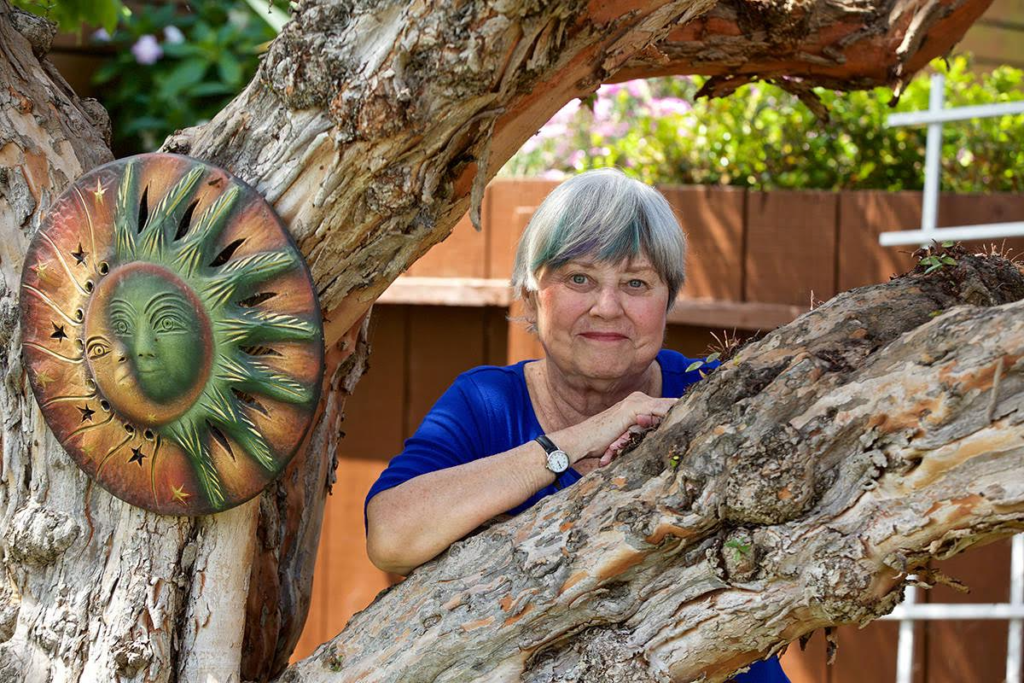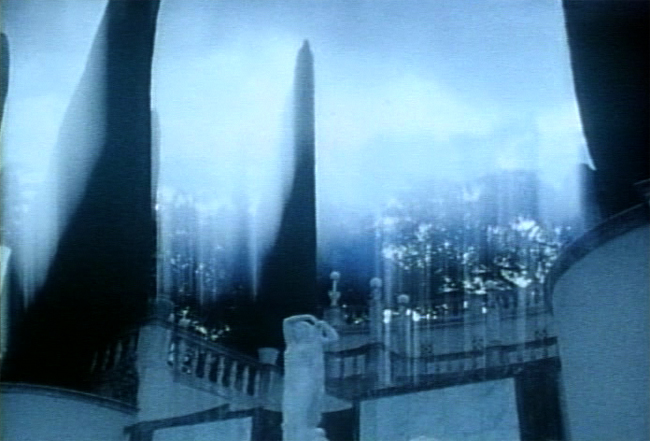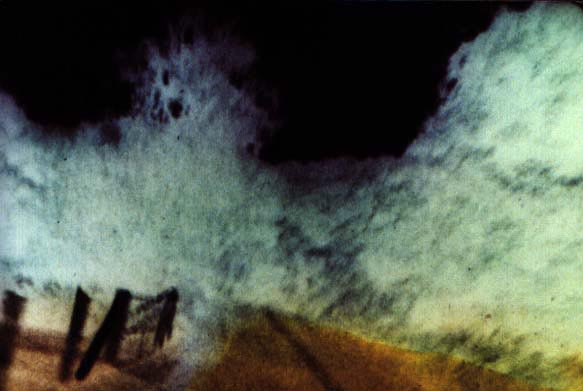Canyon Cinema presents A Tribute to Barbara Klutinis, July 30, 2022
Posted July 5th, 2022 in Announcements, Events and Screenings, News / Events

Active Processing in Shifting Bodies: A Tribute to Barbara Klutinis
Saturday, July 30, 2022, 4pm
The Roxie Theater, San Francisco
Curated by Veronica Luke
Tickets and program info: bit.ly/CanyonBarbaraKlutinis
Canyon at the Roxie pays tribute to acclaimed San Francisco filmmaker, fly fisher, and feminist Barbara Klutinis (1943-2020). Barbara’s son, Dan Steiner, will be in attendance.
Klutinis’s work strives to create “poetic environments which exist in ‘other’ realities,” utilizing contrast between sound and image to create textural juxtapositions. Self-labeled a “textural colorist,” Klutinis juxtaposes sound and image to give voice to the texture rather than content of an image. For her, filmmaking served as a vehicle of self-reflection, and a means for observing external and internal changes. Her tactile approach to film alteration (optical printing, hand coloring and hand processing) texturizes the intangible, processing the turmoil that shifting life processes yield.
Screening line-up: Pools (1981), Wind/Water/Wings (1995), Trumpet Garden (1983), Journey, Swiftly Passing (2000)

Pools (Barbara Hammer, 1981, 8 minutes, color, sound, 16mm)
Made with Barbara Klutinis
Pools creates an active viewing experience, extending an awareness of the body submerged in water. “POOLS is a pictorially and technically impressive sampling of spectacular swimming pools at W.R. Hearst’s San Simeon and manages to validate itself from within, or at least within its own frame of identification.” (Richard T. Jameson)

Wind/Water/Wings (Barbara Klutinis, 1995, 22 minutes, color, sound, 16mm)
Wind/Water/Wings draws on an awareness of internal shifts, of a body going through menopause. “An optically-printed canvas which explores the interior feel of world moving with inherent fluidity through a medium of wind and water. It presents an impressionistic portrait of unnatural forces that collide. On a metaphorical level, the film represents a fragile, interactive status of nature. Footage includes the windmills at Altamont Pass and the jellyfish in the Monterey Bay Aquarium. This is my menopause film: meditative, reflective, unsettling, unpredictable, sometimes ripping apart at the seams. It takes the form of an archetypal drama between nature’s poetic elements and unnatural forces gone awry. This film can also be seen as a metaphor for our fragile environment – both interior and exterior.” (Barbara Klutinis)
Trumpet Garden (Barbara Klutinis, 1983, 10 minutes, color, sound, 16mm)
Trumpet Garden, Klutinis’s first solo film, focuses on the uncertainty of bearing children, of internal changes of pregnancy. “An environmental portrait. A woman in black explores the rituals of nature, life and death in a fertile garden filled with aural and visual textures The film, inspired by Maya Deren, employs juxtaposition of image and sound based on similar textures rather than on temporal logic, creating the feel of an environment that is misaligned and surreal. In retrospect, Trumpet Garden is an emotional diary of my pregnancy. Like gestation, it can be divided into three parts: The first part explores the mystery of the garden, the second the joys of the garden and the third the fear of death and the paranoia of the unknown.” (Barbara Klutinis)

Journey, Swiftly Passing (Barbara Klutinis, 2000, 23 minutes, color, sound, 16mm)
Journey, Swiftly Passing intermixes Klutinis’s memories of her children with those of her parents when they were younger, reflecting on the death of her father. “Endless curves pull the wanderer along a road, bounded on either side by epiphanies and memories, weighted by the gravity of morality. A hand colored, hand processed, optically printed variation on life’s journey.” (Barbara Klutinis)
Approximate Running Time: 63 minutes
About Barbara Kluntinis
Barbara Klutinis flew into San Francisco in 1970 as a Pan Air stewardess, producing photography out of a home darkroom on the side. She met Barbara Hammer in the early 1980s in film classes offered by the University of California Extension, and her filmmaking career began. She received a Master’s degree in Film Production from San Francisco State University in 1986, where she went on to teach Film Studies. She also taught Film Studies at Skyline College for 16 years, and animation to children at the Rooftop School. Her early films were 16mm, optically-printed and hand-colored. She later shifted into “quasi-documentary” films made with found footage, and more conventional documentaries such as The Sum Total of Our Memory: Facing Alzheimer’s Together (2014). Her films have been screened at festivals in the US, Europe, South America, Mexico, Canada, and Japan.


